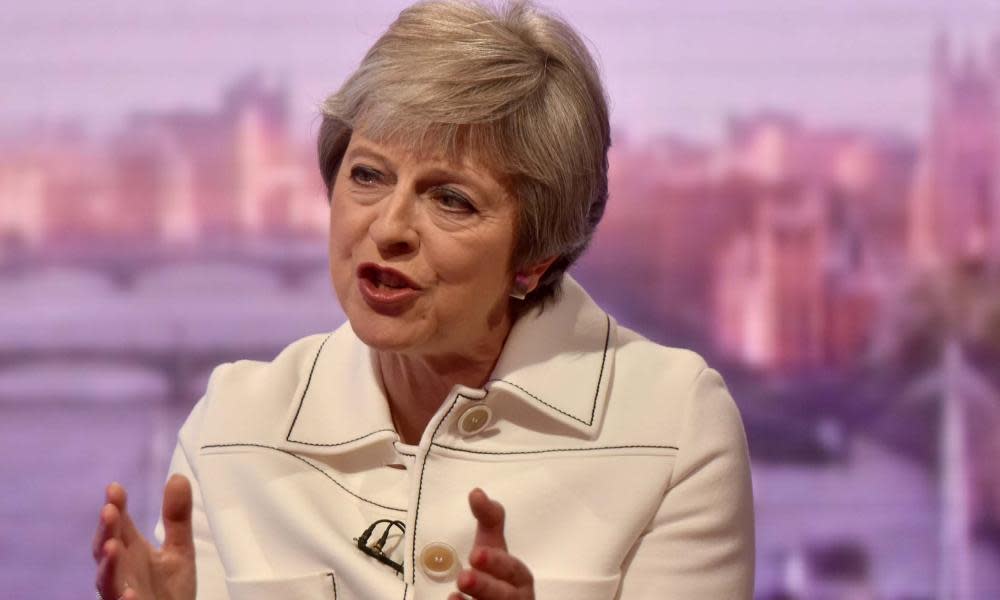May faces Commons reckoning over cross-border trade bill

Ten days after the Chequers summit, a parliamentary reckoning beckons. It may not sound particularly exciting but the remaining stages of the taxation (cross-border trade) bill in the Commons on Monday represent a critical moment for Theresa May’s premiership.
Can the prime minister steer her Brexit legislation through parliament past the Labour-Tory remainer alliance and the increasingly angry hard Brexiter faction? Can she endure whatever Boris Johnson and David Davis want to tell MPs about Brexit policy and her leadership after their resignations a little less than a week ago?
The purpose of the taxation bill is simple enough: it allows the government to create a functioning and independent customs, VAT and excise regime after Brexit. It will be followed a day later by a related trade bill, that will take some 40 trade agreements signed by the EU with third countries and place them in UK law.
Essential housekeeping then, or as May told Andrew Marr on Sunday morning “an important part of our no-deal preparations” as she tried to sell them to her hard Brexit flank.
Ironically, the arrival of these bills had been eagerly awaited for months by opposition MPs and remainer Tories because they presented a chance to have a meaningful vote on whether the UK should remain part of the EU customs union and take the country down a soft Brexit route.
A crucial amendment put down by Anna Soubry and Kenneth Clarke, which has the support of Labour and other opposition frontbenches, seeks to do just that. It says that staying in the EU customs union shall be a “negotiating objective” of the government. But at this moment, Tory remainers are wary of inflicting damage on an already vulnerable prime minister and few believe that if pressed to a vote, the amendment would pass.
So those behind the amendment are considering their options – one of which is to drop it at the last minute. The bill must still go through the House of Lords, where it is almost certain to be heavily amended. That means it will have to return to the Commons in the autumn where MPs can finally vote on staying in the customs union. Except that by then, Brexit talks will be at a very late stage for such a policy reversal.
A final decision on dropping the amendment is down to Soubry, the amendment’s proposer. If she does yield (she has previously said she would not), it means the Tory remainer bluff has been called again, a month after Dominic Grieve backed down on the issue of a meaningful vote.
Meanwhile, angry hard Brexiters – members of the European Research Group – last week put down four of their own amendments. The most important of these is aimed at killing off the facilitated customs arrangement proposed at Chequers, in which the UK would collect tariffs on all goods entering the country and refund any difference on items destined for the EU. However, the ERG amendments have no chance of becoming law as Labour has said it will not support them.

That, though, is not their purpose. Jacob Rees-Mogg, speaking on the BBC’s Daily Politics, claimed the plan was to mount a show of strength, saying “we’ll have an idea of the numbers at 10pm on Monday evening”. Only 20 or 30 supporters and the ERG will look weak. Anything greater than 48 – the number to trigger a confidence vote among the party’s MPs – will be significant. And anything close to 100 would be downright dangerous for the prime minister.
If, that is, the ERG presses its amendments to a vote: some sources predict it too could fold if May agrees to support some of its other wishes. One says it should be made illegal to have separate customs arrangements with Northern Ireland, which is already the position of the government.
After all this, the taxation (cross-border trade) bill still has to pass its third reading. The opposition parties are set to vote against the whole bill, assuming the customs union amendment fails. It would theoretically take about a dozen Tories to vote against to bring the legislation down. Rees-Mogg said it was “highly unlikely” that hard Brexiters would vote against the bill at third reading, but it is unclear how disciplined his faction is.
With the position sufficiently uncertain, there are rumours – unconfirmed – that the government might delay the whole debate, or just the final vote on the third reading, to avoid the risk of defeat. On the other hand, if May can steer through the middle, win around Tory remainers and see off Johnson’s bluster and Brexiter threats, then the prime minister would be entitled to feel that her hard-won Chequers settlement will hold.

 Yahoo News
Yahoo News 
